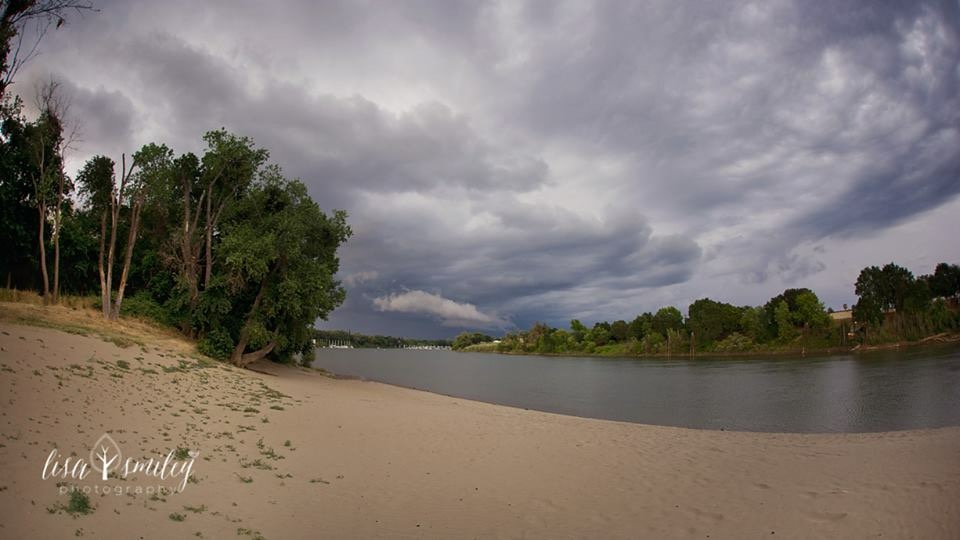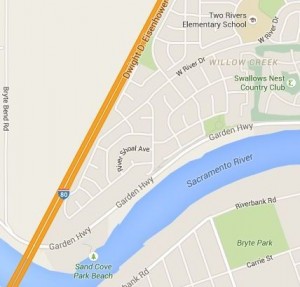THE NATOMAS BUZZ | @natomasbuzz
Update: Dog tested negative per Sacramento County officials via email.
A report a dog died after it swam in the river near Sand Cove Park in Natomas has prompted Sacramento County health officials to warn the public and their pets to avoid water with visible blue-green algae.
Sacramento County Public Health was notified of the dog’s death this week by a local veterinarian. The UC Davis Veterinary Lab will test the dog to determine whether exposure to blue-green algae contributed to the cause of death.
Sand Cove Park is located at 2005 Garden Highway on the Sacramento River. (see map)
Sacramento County Environmental Management Department and the California State Department of Fish and Wildlife took samples of water from the Sacramento River on Wednesday, Oct. 7, to test for blue-green algae toxins and are awaiting results.
City and county officials are in the process of posting signage at parks along the river advising the public and pet owners to stay away from water with foam, scum or mats.
Blue-green algae are a type of bacteria and are naturally found in fresh and marine water bodies. It’s only when they are present in large quantities that they present a problem.
Warm, slow-moving waters that are rich in nutrients such as phosphorous and nitrogen can cause algae growth. Blooms can occur at any time, but are most common in late summer or early fall. The bloom can be green, blue-green, white or brown, and may look like a floating layer of scum.
If toxic algae touches a person’s skin or is accidentally inhaled or swallowed, he/she could get a rash or an allergic reaction, or develop gastrointestinal problems, including nausea, vomiting, and diarrhea. In large quantities, the toxins can also cause neurological or liver damage and lead to death. Reactions can occur anywhere from a few hours to days after exposure.
People, pets and livestock should not swim, nor wade, in water that contains algae. People should not drink or cook with this water. Even if the water is boiled or filtered, the toxins can persist. Medical treatment should be sought if any person, pet or livestock is suspected of having been poisoned by blue green algae toxins.



Speak Your Mind
You must be logged in to post a comment.